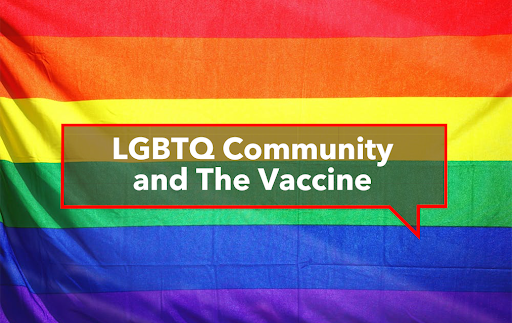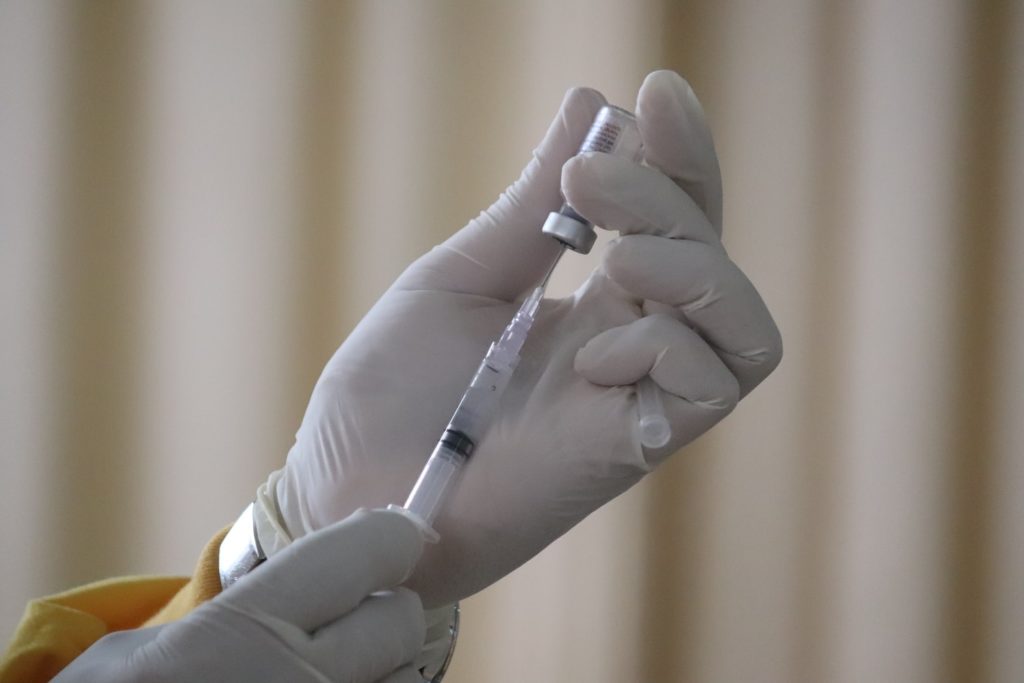LGBTQ Community + The Vaccine

The COVID-19 pandemic has affected all of us, but particularly those in the LGBTQ community. The recent data around the impact of the pandemic has highlighted the importance of inclusivity and equality when it comes to health, safety, and wellbeing.
Nobody could have expected the pandemic to spread across the world in the way that it did in early 2020. Even now, there is still a level of unpredictability surrounding the world’s future as we know it.
The LGBTQ Community and COVID-19
This unpredictability is proving difficult for lesbian, gay, bisexual, transgender, or queer people, who already faced huge difficulties prior to the COVID-19 pandemic. The past two years’ events have exposed the existing challenges the community members have already faced and have been facing for decades. It exposed the inequalities that still exist in society today.
Many LGBTQ members have to deal with social stigma and discrimination. They often have fewer economic opportunities and are more likely to be less financially wealthy, despite working the same jobs and having the same level and variety of skills as those who are not members of the community.
The response to COVID-19 varied across the world, but what became extremely prominent was the negative opinions still held by many regarding the LGBTQ community.
LGBTQ individuals are more likely to work in high-risk jobs or industries whose employees are more likely to be exposed to COVID-19. They are also more likely to smoke and suffer from asthma or other health conditions that can exacerbate the negative side effects of the COVID-19 virus.
Unfortunately, this discrimination and negativity are not just prevalent in the United States. Lesbian, gay, bisexual, transgender, and queer individuals have experienced horrific treatment in countries across the globe.
LGBTQ Community and HIV
The LGBTQ community first became sexually liberated in the 1960s and 1970s through the development of ‘gayborhoods’. These gayborhoods enabled LGBTQ individuals to form alliances and interact with like-minded people.
The development of these communities came alongside the HIV/AIDS pandemic. During the 1980s, when the disease was rife in LGBTQ communities across the globe, the government did very little to help. In turn, these communities came together and supported one another. Unfortunately, this led to the creation of a stigma that remains today.
The COVID-19 pandemic is showing worrying parallels to the HIV/AIDS pandemic of the 1980s. Both HIV/AIDS and COVID-19 presented a misalignment between the government and the LGBTQ community. There was, and is, a lack of proper healthcare provision and an increasing threat to LGBTQ individuals.
The LGBTQ Community and the COVID-19 Vaccine

Some of the LGBTQ communities across the world have been impacted differently by the COVID-19 pandemic. Those who are lesbian, gay, bisexual, transgender, or queer are at higher risk of adverse health effects due to the COVID-19 virus, and they are also more likely to suffer financially, according to the KFF COVID-19 Vaccine Monitor.
More LGBTQ adults lost their jobs during the pandemic, and around 75% say that their mental health suffered as a result of the lockdowns, compared to 49% of those who do not identify as a member of the LGBTQ community.
The LGBTQ population expressed the same levels of concern over the pandemic, and a similar proportion of the community expressed the desire to get vaccinated as non-LGBTQ adults. However, many LGBTQ adults saw getting the vaccine as part of everybody’s responsibility to protect the community instead of more of a personal choice. This was reversed in the non-LGBTQ population.
While 42% of LGBTQ adults say they are likely to get vaccinated, the lack of communication surrounding the COVID-19 virus and the vaccine has led many LGBTQ people to hesitate.
With the LGBTQ community being at increased risk of infection and health complications, it is understandable that they are hesitant to get vaccinated. The long-term effects of the vaccine are still unknown, and nobody is certain how it will affect the health of each community.
But it’s not just the physiological effects of the vaccine that are worrying to LGBTQ people. As they are more likely to suffer from discrimination and poverty than non-LGBTQ adults, they are already at a disadvantage when it comes to their physical and mental health.
The COVID-19 pandemic has only enhanced these disadvantages. LGBTQ individuals are less able to access medical care or be granted paid medical leave due to COVID-19 health effects. They are also less likely to access basic human necessities during the lockdowns, which has made their everyday living much more difficult.
Final Thoughts
Despite society gradually moving towards a more welcoming direction, there is still a lot of work to be done regarding the equality between non-LGBTQ and LGBTQ communities.
It’s unclear what will happen in the near future regarding the COVID-19 pandemic, but what is certain is the need for everybody to support and respect one another, regardless of LGBTQ status, during this tough time.

